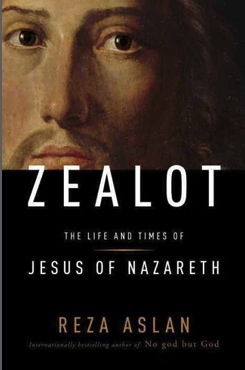 A few months ago I finished “Zealot,” by Reza Aslan. This wonderful book looks at what history tells us about Jesus, the people around Jesus, and that era in general. I learned so much, and as a result, I now read Scripture in a much more informed manner.
A few months ago I finished “Zealot,” by Reza Aslan. This wonderful book looks at what history tells us about Jesus, the people around Jesus, and that era in general. I learned so much, and as a result, I now read Scripture in a much more informed manner.
Aslan, a religious historian, is a Muslim with an evangelical background. He is fascinated by Jesus, and holds Christianity in high regard (he married into an evangelical family). While some of his views conflict with traditional Christian teaching, he never attacks or tries to discredit Christianity like the atheist writers–Dawkins, Hitchens, etc. He’s just saying, “This is what history tell us.” His views also differ from traditional Islamic teaching about Jesus–again, based on his objective findings as a religious historian.
The book is mostly straightforward history. He gives background on Herod, Pilate, the high priests, other “messiahs” (pretty much all of them killed by the Romans), the economic boom occurring in Galilee at the time, the mood in Israel (always on the verge of rebellion against Rome), the disciples, the divide between Paul and the church in Jerusalem, the destruction of Jerusalem, and so much more. His explanation of why Jesus referred to himself as the Son of Man is excellent, and unlike anything I’ve heard before. In explaining the historical context of Galilee, he presents some utterly fascinating, and totally plausible, possibilities for how Jesus might have spent those “silent” years of his youth (helping build Herod’s “dream city” very close to Nazareth). He information about James, the brother of Jesus who led the church in Jerusalem, presents an incredible hero of the faith we never talk about.
I’ve found that Christian writers tend to regurgitate the same information. They use each other for references, and so you get nothing new. But Aslan comes at the life of Christ from a totally different perspective and illuminates that period of history in ways that continually made me stop and go, “Wow! I never heard that!”
Aslan’s writing style is clear and accessible–not academic in any way (though he footnotes extensively). It’s not a long book (less than 300 pages without the footnotes), broken into topical, fairly short chapters. He humbly admits, right up front, that his conclusions are nothing new, and that many of his claims can be rebutted with equally authoritative claims. There is no academic arrogance here. When he discounts a miracle, it’s not because he doesn’t believe in miracles, but because no historical source beyond the Bible mentions it. He divides events into matters of history, and matters of faith. For instance, he says the crucifixion of Jesus is a matter of history, but for Christians the resurrection is a matter of faith which goes beyond the historical record–and he’s okay with that. There are similar matters of faith in Islam.
Aslan describes himself as a disciple of Jesus of Nazareth, but not a disciple of Jesus the Christ. Viewing Jesus as the Christ is a matter of faith. But even the historical record, he shows, contains evidences of Christ’s divinity, including his well-documented (I didn’t realize) reputation as a miracle worker and healer. He even gives one of the best proofs for the resurrection that I’ve heard (based on the disciples).
The book was just downright eye-opening to me. I learned so much about Jesus, and compromised none of my doctrinal views. Aslan never promotes Islam; doesn’t even mention it, I don’t think, except in the opening chapter in giving his background. It was easy for me to cling to my view of Scripture as the authoritative Word of God, and to slide over what conflicted with my views. Aslan apparently found the Bible authoritative from a historical standpoint (basically, with caveats), because he used the Bible as his main source of information about Jesus. Many times, in fact, I felt like I was in a Bible study.
I’ve been very simplistic here in reviewing “Zealot,” and can’t do justice to Aslan’s approach. I’m sure many of my fellow Christians are ready to go on the warpath to defend the faith. But please, just read the book. Yes, he raises lots of questions for us Christians, but always in a respectful way. Aslan’s Jesus and my Jesus inhabited the same world. Aslan helped me better understand that world and, in the process, better understand my Savior.


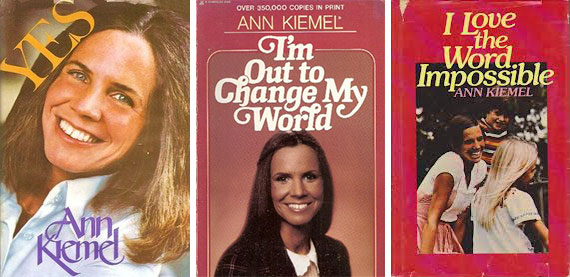
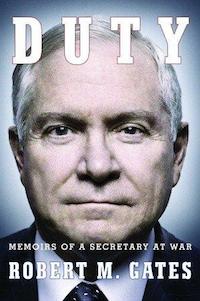 I just finished a remarkable book: “Duty,” by Bob Gates, the Secretary of Defense 2006-2011. I recommend it highly. It’s the best book I’ve read this year (okay, it’s only the 5th book, but still).
I just finished a remarkable book: “Duty,” by Bob Gates, the Secretary of Defense 2006-2011. I recommend it highly. It’s the best book I’ve read this year (okay, it’s only the 5th book, but still). A few months ago I finished “Zealot,” by Reza Aslan. This wonderful book looks at what history tells us about Jesus, the people around Jesus, and that era in general. I learned so much, and as a result, I now read Scripture in a much more informed manner.
A few months ago I finished “Zealot,” by Reza Aslan. This wonderful book looks at what history tells us about Jesus, the people around Jesus, and that era in general. I learned so much, and as a result, I now read Scripture in a much more informed manner.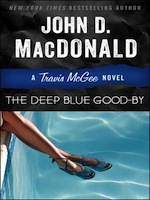 This is the first book in the Travis McGee series; Random House just began republishing the whole series.
This is the first book in the Travis McGee series; Random House just began republishing the whole series.
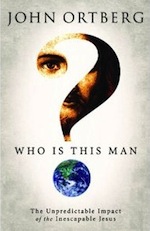 I just finished the marvelous book “Who is This Man?”, by John Ortberg. I highly, highly recommend it. Wonderful new (to me) insights into Jesus and his influence throughout history. (And an introduction by Condoleeza Rice!)
I just finished the marvelous book “Who is This Man?”, by John Ortberg. I highly, highly recommend it. Wonderful new (to me) insights into Jesus and his influence throughout history. (And an introduction by Condoleeza Rice!)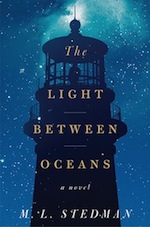 I just finished “The Light Between Oceans,” by M.L. Stedman, easily the best book I’ve read this year. Beautifully written. I understand it’s an Oprah Book Club selection.
I just finished “The Light Between Oceans,” by M.L. Stedman, easily the best book I’ve read this year. Beautifully written. I understand it’s an Oprah Book Club selection.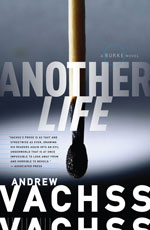 Just finished “Another Life,” the 18th and final book in Andrew Vachss series of urban noir about the man called Burke. The book is from 2008, but I just reached the end of the series.
Just finished “Another Life,” the 18th and final book in Andrew Vachss series of urban noir about the man called Burke. The book is from 2008, but I just reached the end of the series.
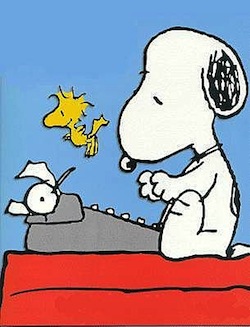 Because I’ve written some books, people occasionally contact me with their own book ideas. When they tell me what the book will be about, my reaction is often, “It sounds like you have an article, not a book.”
Because I’ve written some books, people occasionally contact me with their own book ideas. When they tell me what the book will be about, my reaction is often, “It sounds like you have an article, not a book.”


